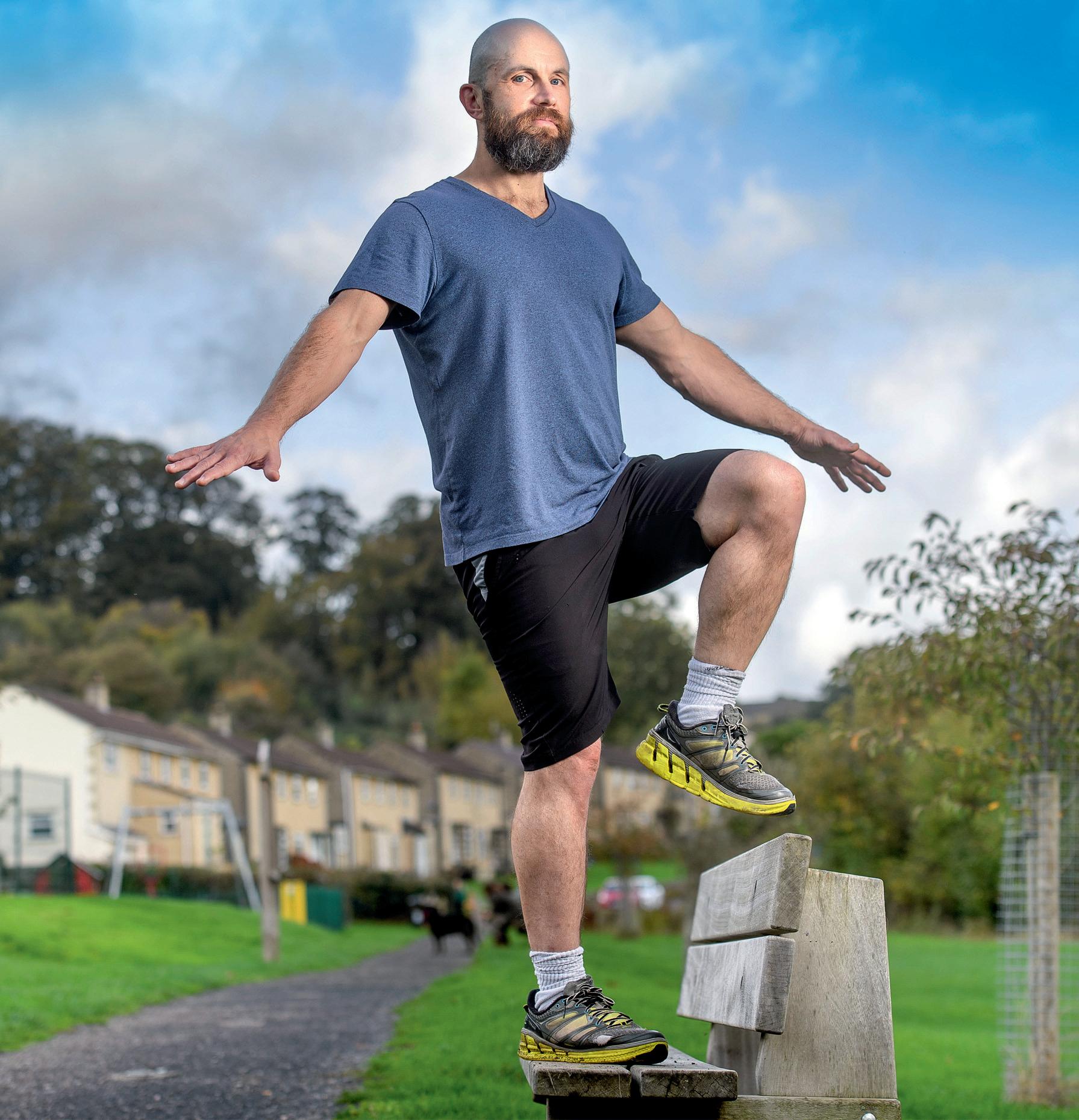
Until we start to lose our U balance, we barely notice that it's there at all. "It starts for a lot of people with simple stuff," says Dr Anna Lowe, an expert on healthy ageing and physical activity. "Maybe you used to be able to quickly stand on one leg to put a shoe on, and you've stopped doing that.
Maybe you used to get out of the bath on to a slippery floor without thinking, and now you have to hold on to something. It's easy to either miss the signs or just put it down to ageing-but it really is something you can affect." The key, it is increasingly becoming clear, is to address the decline before it gets serious: and that can happen earlier than you might think.
What is balance? Perhaps surprisingly, those who deal with it have struggled to settle on a single definition. Technically, it's the complex interaction of several different systems in your body - from muscles, nerves, eyesight and the inner ear to the sensory system that lets you recognise where your body is touching the ground, along with movement receptors within your joints that tell you where your body is in space. It's not something we're born with, but an ability that we gain early and lose over time. Most simply, balance is often defined as the ability to distribute your bodyweight over your base of support-a definition that muddles up movement and physical ability with what other people think of as innate.
Denne historien er fra November 11, 2022-utgaven av The Guardian Weekly.
Start din 7-dagers gratis prøveperiode på Magzter GOLD for å få tilgang til tusenvis av utvalgte premiumhistorier og 9000+ magasiner og aviser.
Allerede abonnent ? Logg på
Denne historien er fra November 11, 2022-utgaven av The Guardian Weekly.
Start din 7-dagers gratis prøveperiode på Magzter GOLD for å få tilgang til tusenvis av utvalgte premiumhistorier og 9000+ magasiner og aviser.
Allerede abonnent? Logg på

The Saudi football World Cup is an act of violence and disdain
Well, that's that then. In the event there were only two notes of jeopardy around Fifa's extraordinary virtual congress last week to announce the winning mono-bids, the vote without a vote, for the right to host the 2030 and 2034 football World Cups.

AI has made the move into video and it's worryingly plausible
I recently had the opportunity to see a demo of Sora, OpenAI's video generation tool, which was released in the US last Monday, and it was so impressive it made me worried for the future.

With tyrant Assad ousted, Syrians deserve support and hope
Last week, time collapsed. Bashar al-Assad's fall recalled scenes across the region from the start of the Arab spring almost 14 years ago. Suddenly history felt vivid, its memories sharpened. In fact it no longer felt like history.

TV
The Guardian Weekly team reveals our small-screen picks of the year, from the underground vaults of post-apocalyptic Fallout to the mile-high escapism of Rivals

Albums
Murky love stories, nostalgic pop and an in-your-face masterpiece captured our critics' ears in 2024

Film
Visual language, sound, light and rhythm are to the fore in the best movies of the year

Hidden delights Our 24 travel finds of 2024
Guardian travel writers share their discoveries of the year, from Læsø to Lazio

'It's really a disaster' The fight to save lives as gang war consumes capital
Dr James Gana stepped out on to the balcony of his hospital overlooking a city under siege. \"There's a sensation of 'What's next?'. Desperation is definitely present,\" the Médecins Sans Frontières (MSF) medic said, as he stared down at one of scores of camps for displaced Haitians in their country's violence-plagued capital.

Trailblazers The inspiring people we met around the world this year
From an exuberant mountaineer to a woman defiantly facing the guns of war, here are some of the brave individuals who gave us hope in a tumultuous 2024

Votes of confidence
From India to Venezuela and Senegal to the US, more people voted this year than ever before, with over 80 elections across the world. With rising authoritarianism and citizen-led resistance revealing its vulnerabilities and resilience in the face of unprecedented challenges, has democracy reached its breaking or turning point?